“There is no psychiatrist in the world like a puppy licking your face,” wrote Bernard Williams, and perhaps he was right.
Dogs heal in ways we can’t measure, and some go further still. They tune into emotions that humans often miss, sensing sadness before words can shape it. Their gift is empathy, expressed not through language but through presence. They sit with you in silence, lean into your grief, and celebrate with you in joy.
For those who have felt this unspoken bond, it feels like being understood at the deepest level. Yet this gift is not shared equally across all breeds. Certain dogs are especially known for their emotional intelligence and their ability to comfort.
In this article, we’ll reveal the most emotional dog breeds that understand vulnerability with striking clarity.
Most Emotional Dog Breeds Who Understand Vulnerability
1. Cavalier King Charles Spaniel
This breed is deeply attuned to human emotions, often mirroring the mood of its family members. Their ability to sense stress or sadness makes them comforting companions. They lean in, sit close, and offer silent reassurance through presence.
Therapy and Comfort Roles
Cavaliers are often chosen as therapy dogs because of their gentle response to human vulnerability. Their calm behavior eases anxiety in hospitals, schools, and senior homes. People naturally find comfort in their steady eye contact and soft demeanor.
Strong Family Bonds
They thrive when surrounded by people, forming lasting connections that feel more like attachment than routine affection. Their response to separation often shows how emotionally invested they are. Key traits include:
Craving physical closeness
Quick recognition of emotional shifts
Persistent desire to engage gently
Adaptability to Human Needs
Their small size allows them to fit comfortably on laps, making them ideal companions for moments of rest or reflection. Cavaliers adapt their energy level to the household, active during play but calm when quiet support is needed. This flexibility is why they excel in emotional roles.
2. Golden Retriever
Golden Retrievers are known for recognizing subtle shifts in mood, often reacting with gentle nudges or by resting their head softly on a lap. Their ability to tune into human feelings has made them one of the most relied-upon breeds in therapy and emotional support programs.
A Golden Retriever named “Smiley,” who was born blind, became a celebrated therapy dog in Canada, visiting hospitals and schools to comfort those in need, as noted by CBS News.
Natural Empathy
The breed shares with Labradors a deep capacity for empathy, rooted in their history as cooperative hunting companions. Goldens excel at reading non-verbal cues, adjusting their behavior based on whether someone needs energy, comfort, or quiet presence.
Calm Companionship
Families often notice their Golden choosing to sit beside someone who feels withdrawn, offering quiet reassurance through simple presence. Their friendly nature extends beyond their own household, making them equally gentle toward strangers needing comfort, as the AKC describes.
Supportive Instincts
Their suitability for therapy roles can be traced to key traits:
Gentle demeanor that eases stress in vulnerable individuals
Friendly disposition that builds trust quickly
Strong attentiveness to human cues, enabling timely emotional responses
3. Labrador Retriever
Labrador Retrievers often adjust their behavior according to the emotional tone around them. They stay close when their owners are sad, offering quiet comfort. This sensitivity explains why they’re among the most trusted dogs for emotional support work.
Connection Through Personality
They’re consistently recognized for being outgoing and approachable, which makes people feel at ease quickly. Labs read body language and respond with warmth, whether it’s leaning gently against a leg or resting nearby. Their ability to sense stress creates a calming environment.
Service and Support Roles
Many families value Labs for more than companionship, since their intelligence and eagerness to please make them reliable service animals. They’re regularly chosen for tasks like:
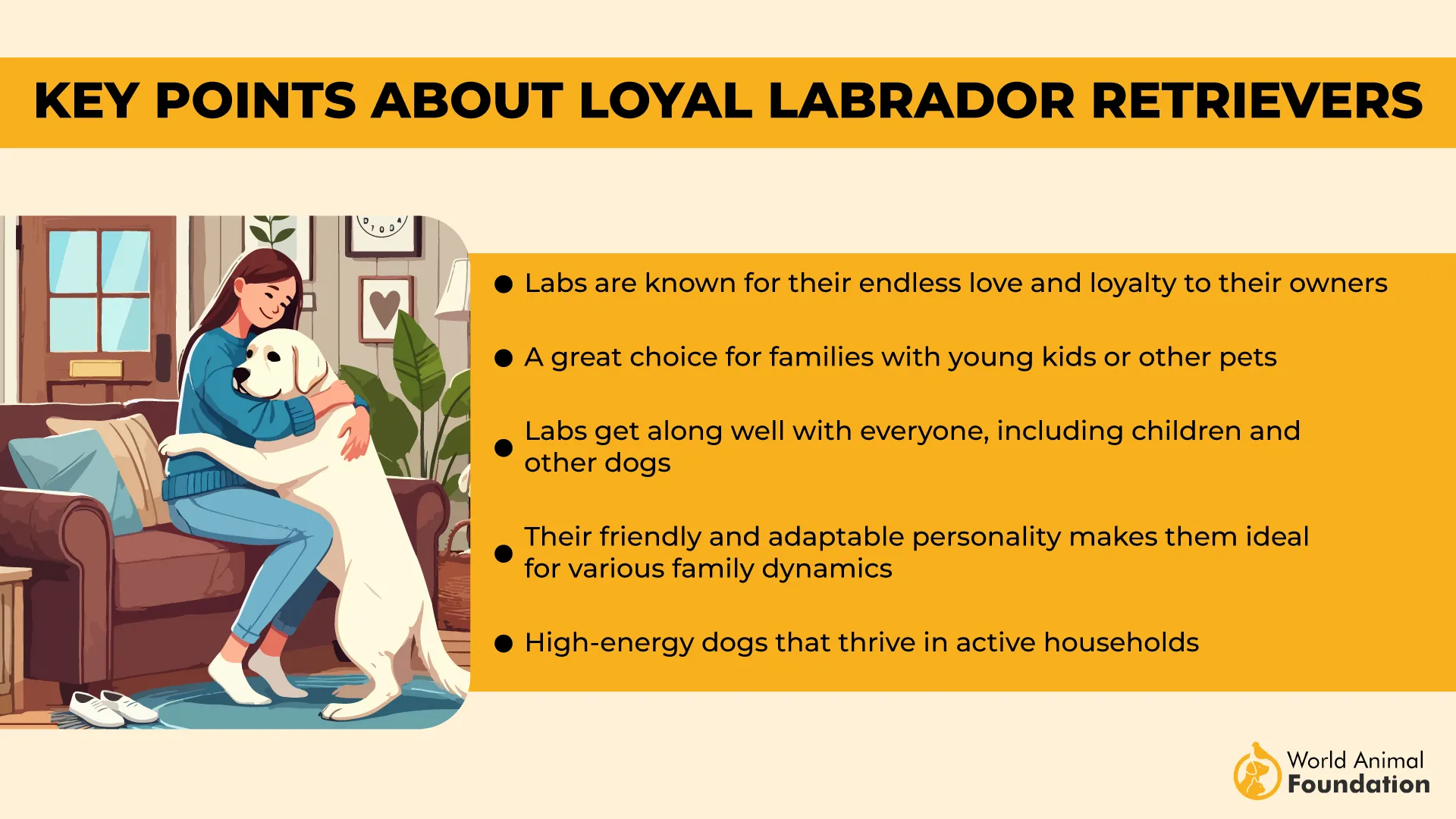
Guiding individuals with vision loss
Assisting with therapy visits in hospitals
Providing comfort in trauma recovery programs
Emotional Bonding in Families
With children, they’re known for patience and steady affection, often waiting quietly during moments of vulnerability, as per Pawlicy Advisor. Their adaptability allows them to switch between playfulness and stillness depending on the mood at home. That balance deepens the emotional trust they build with people.
4. Poodle

Poodles are widely recognized for more than just their intelligence; they display an unusual sensitivity to human emotions. Whether it’s joy, sadness, or stress, they often respond with gentle companionship. This awareness makes them highly supportive in households that value emotional connection.
Attunement Across Varieties
From Standard to Toy sizes, each type of Poodle shows attentiveness to subtle cues in body language and tone of voice. They often adjust their behavior depending on the emotional state of their owners. This adaptability has long made them cherished as family companions.
Natural Companions
Many owners note how Poodles quietly position themselves near someone upset, offering comfort through presence. Their combination of intelligence and emotional intuition allows them to:
Detect mood changes in their families
Provide reassurance during stressful moments
Remain calm anchors in unpredictable environments
Trainability and Sensitivity
While celebrated for their trainability in performance and obedience, their ability to sense vulnerability stands out just as much. They excel in blending structured learning with empathy-driven responses. This dual capacity makes them both stimulating and emotionally grounding companions.
5. Havanese

Havanese are small but mighty when it comes to emotional sensitivity, often tuning into moods without hesitation. Their presence brings comfort during stressful times, and they quietly settle near anyone who needs reassurance. This natural awareness makes them steady emotional companions.
Cheerful Companions
Their bright and friendly demeanor means they rarely shy away from interaction, whether with family members or strangers. They thrive on companionship and will stay close when a person shows signs of sadness or worry. It’s this attentiveness that makes everything feel lighter.
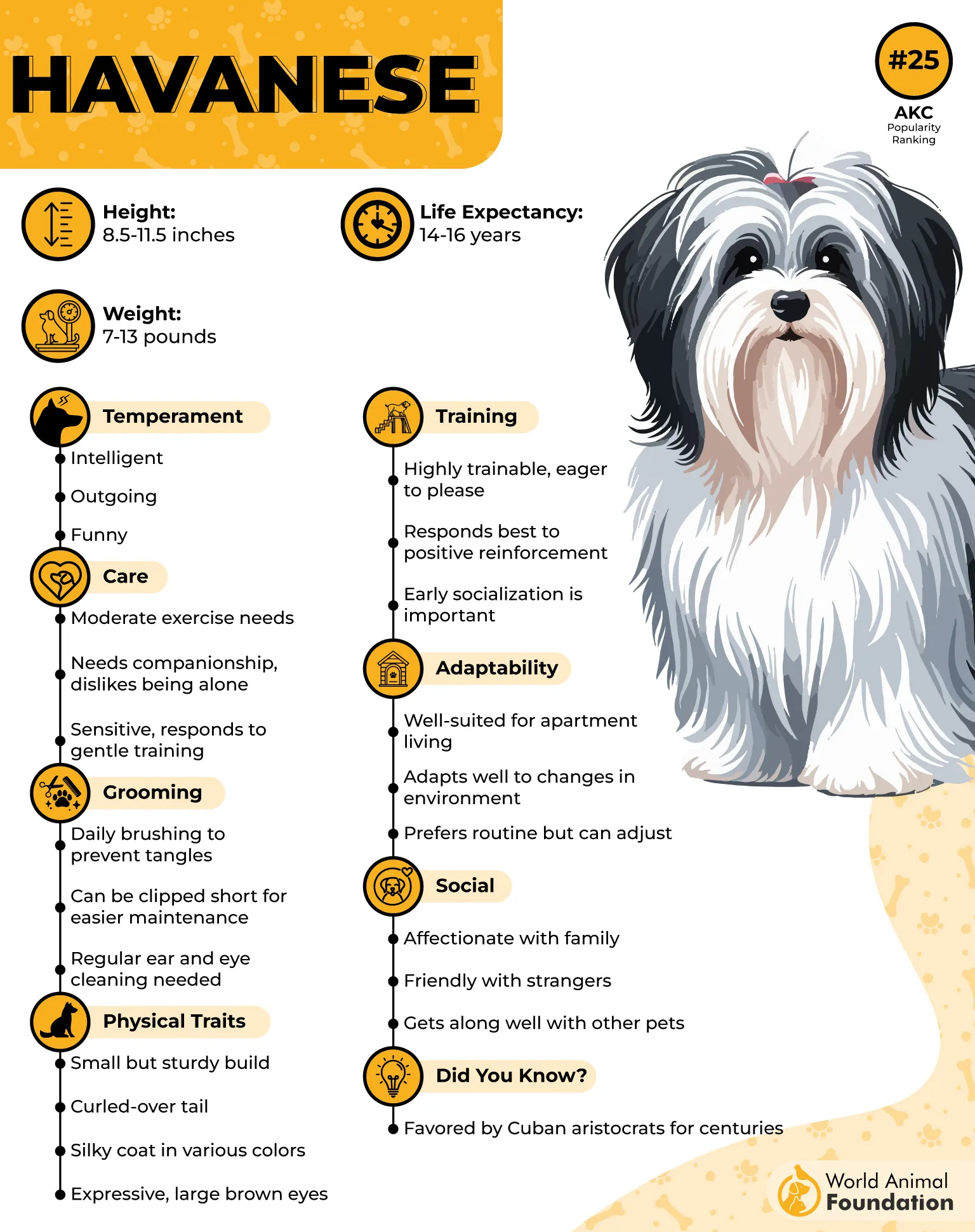
Everyday Supportive Behavior
Owners often notice patterns such as:
Sitting closer during moments of silence
Following from room to room without command
Lifting spirits through playful gestures
These small acts show how they respond directly to human vulnerability.
Adaptability in Families
Havanese easily fit into varied family routines, whether in busy homes or quieter households. Their sensitivity helps them gauge when calm behavior is needed, and when it’s time for joy and play. This balance strengthens their role as reliable emotional anchors.
6. Australian Shepherd
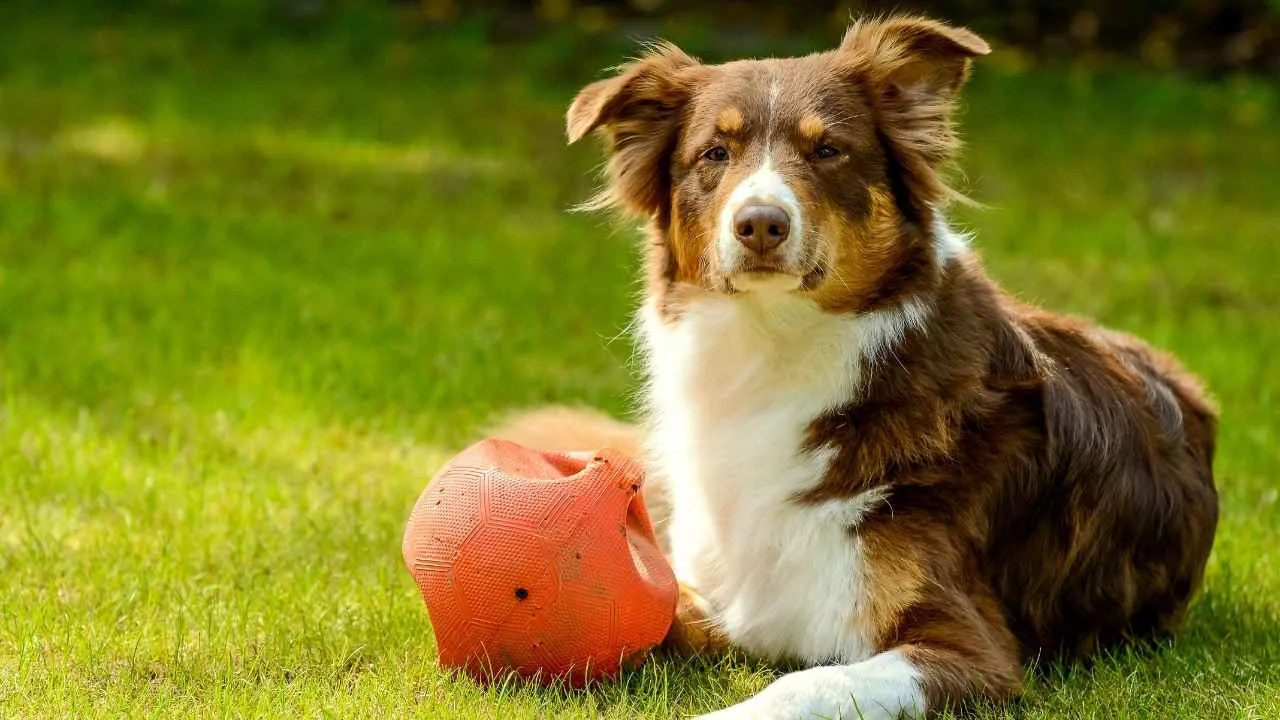
Australian Shepherds are naturally tuned in to the moods of the people around them. They react to subtle shifts in tone of voice, posture, and facial expression. This awareness makes them particularly comforting for owners who need quiet reassurance during vulnerable moments.
Affection Paired with Energy
These dogs are energetic and affectionate, able to “read you like a book” when emotions run high. They quickly recognize sadness or stress and will often nudge, lean, or stay close until the mood shifts. For active families, this mix of vitality and warmth creates strong bonds.
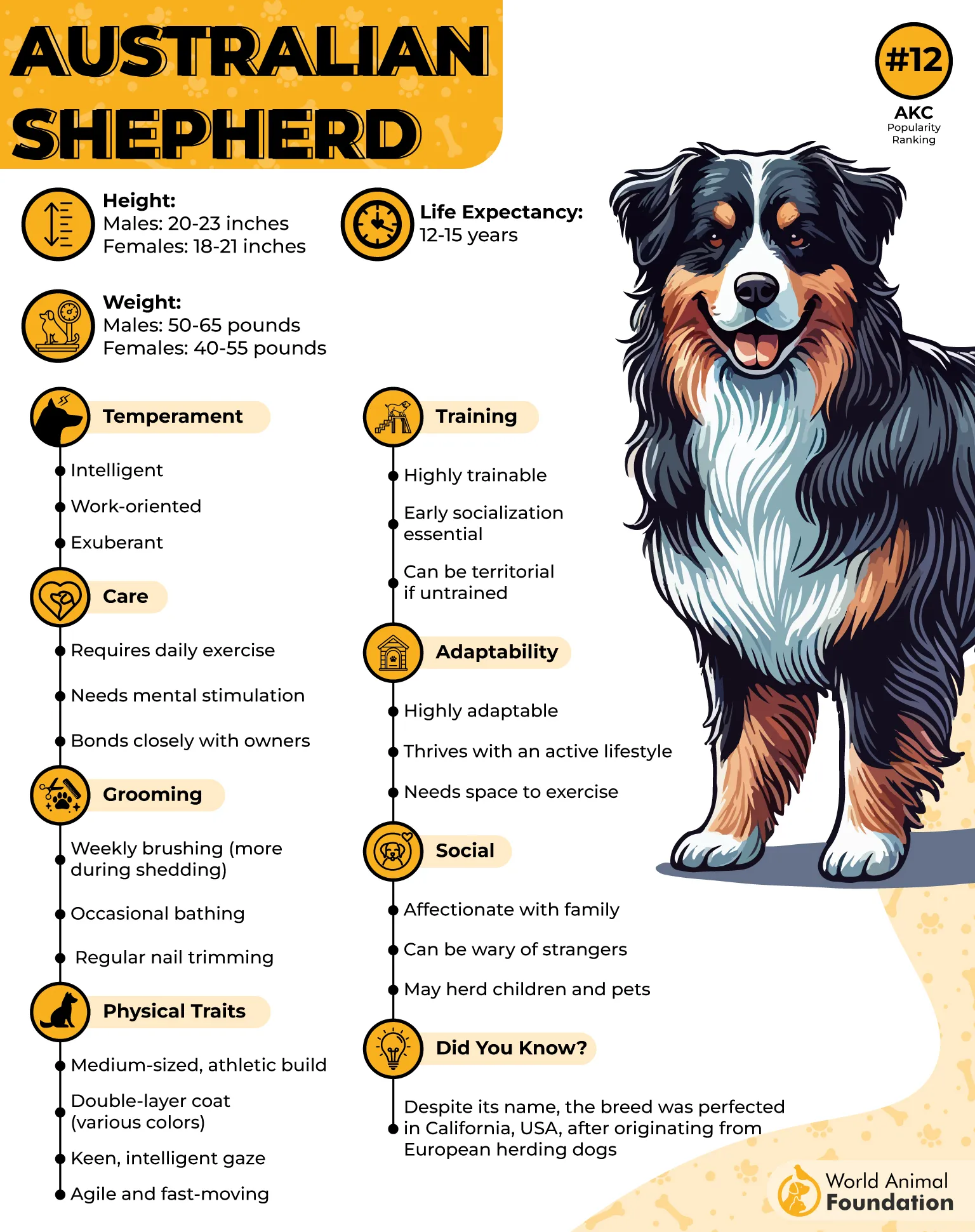
Observant Companions
Aussies don’t just follow commands; they study their environment and the people in it. That attentiveness translates into recognizing emotional cues and responding instinctively. Some of their most common ways of showing care include:
Sitting close when you’re upset
Offering consistent eye contact
Initiating gentle play to lift your mood
Balance for Active Lifestyles
Perfect for individuals who need both emotional balance and physical engagement, the Australian Shepherd excels in combining empathy with activity. Whether joining long hikes or relaxing indoors, their steady companionship helps regulate stress.
7. German Shepherd
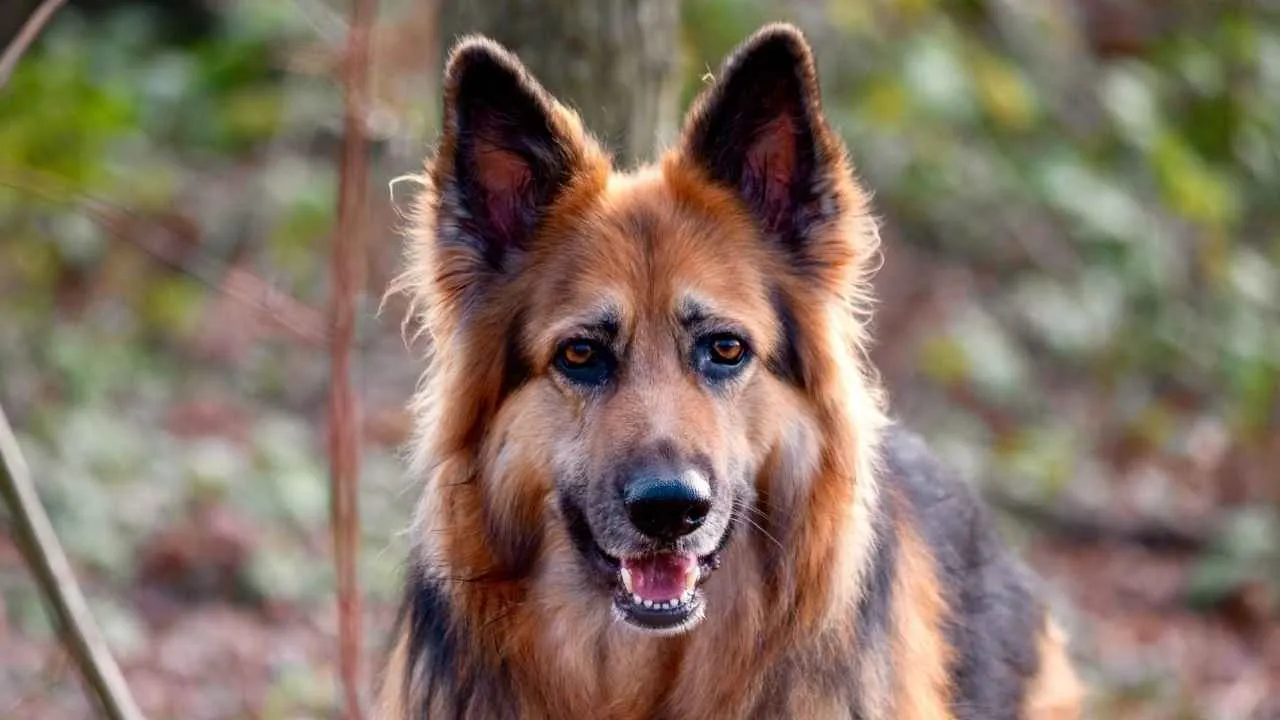
German Shepherds are remarkably observant of human body language and tone of voice. They notice small behavioral changes that signal stress or sadness. This awareness helps them respond in ways that feel comforting and deeply personal.
Loyalty That Translates Into Care
These dogs are highly trainable and fiercely loyal, forming a strong bond with their families. Their instinct to protect often extends beyond physical safety to emotional reassurance. Many handlers rely on their steadiness during moments of vulnerability.

Emotional Intelligence in Action
In professional fields, German Shepherds are valued for more than just physical skill. They quickly attune to the emotional states of their handlers and adjust their reactions accordingly.
Police work shows their ability to sense tension.
Therapy settings highlight their gentle side with those in need.
Family-Oriented Companionship
German Shepherds thrive when integrated into daily routines where connection matters. They provide stability for children, consistency for adults, and patience with the elderly. Their attentiveness makes them both guardians and emotional anchors within a household.
8. Border Collie
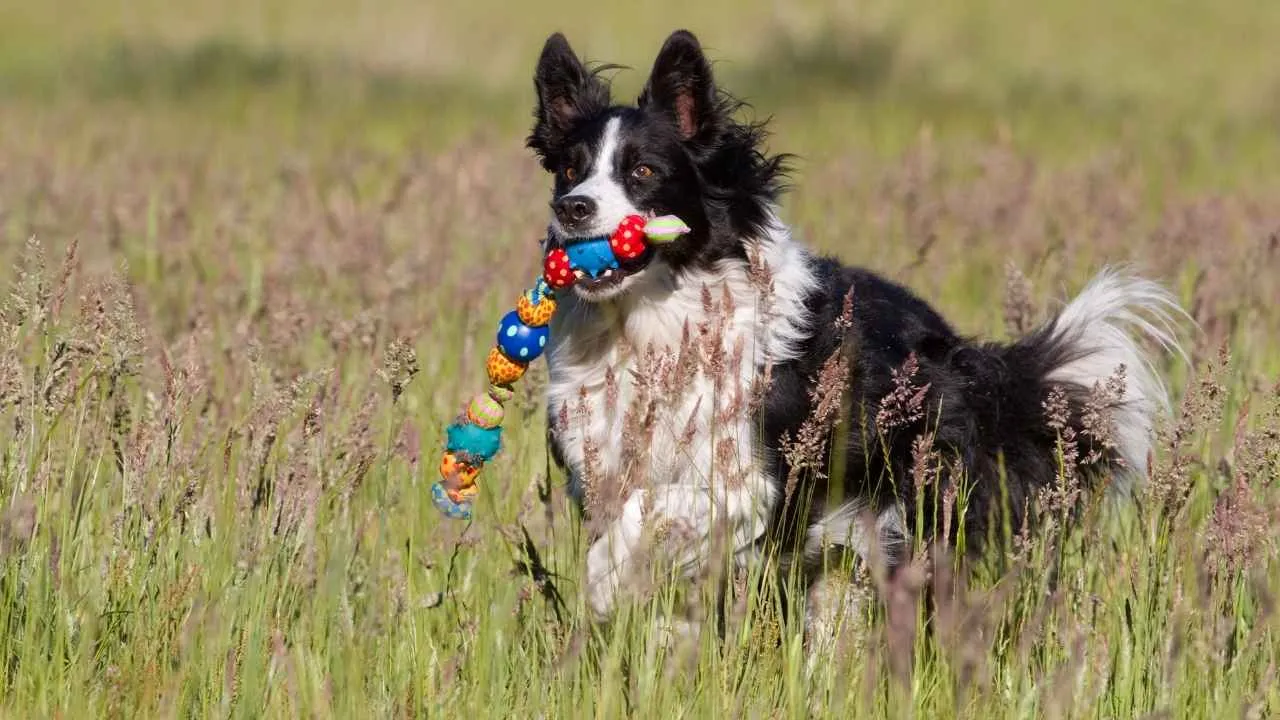
Border Collies are ranked among the smartest dogs, and this intelligence shows in their emotional awareness. They often notice subtle shifts in body language and tone, responding with behavior that matches their owner’s mood. This sensitivity makes them deeply attuned companions for families.
Reading Human Cues
Originally valued for herding, they developed a skill for interpreting both verbal and nonverbal signals. That same ability carries into home life, where they quickly sense stress or vulnerability. Their reactions may include resting quietly nearby or offering gentle physical closeness.
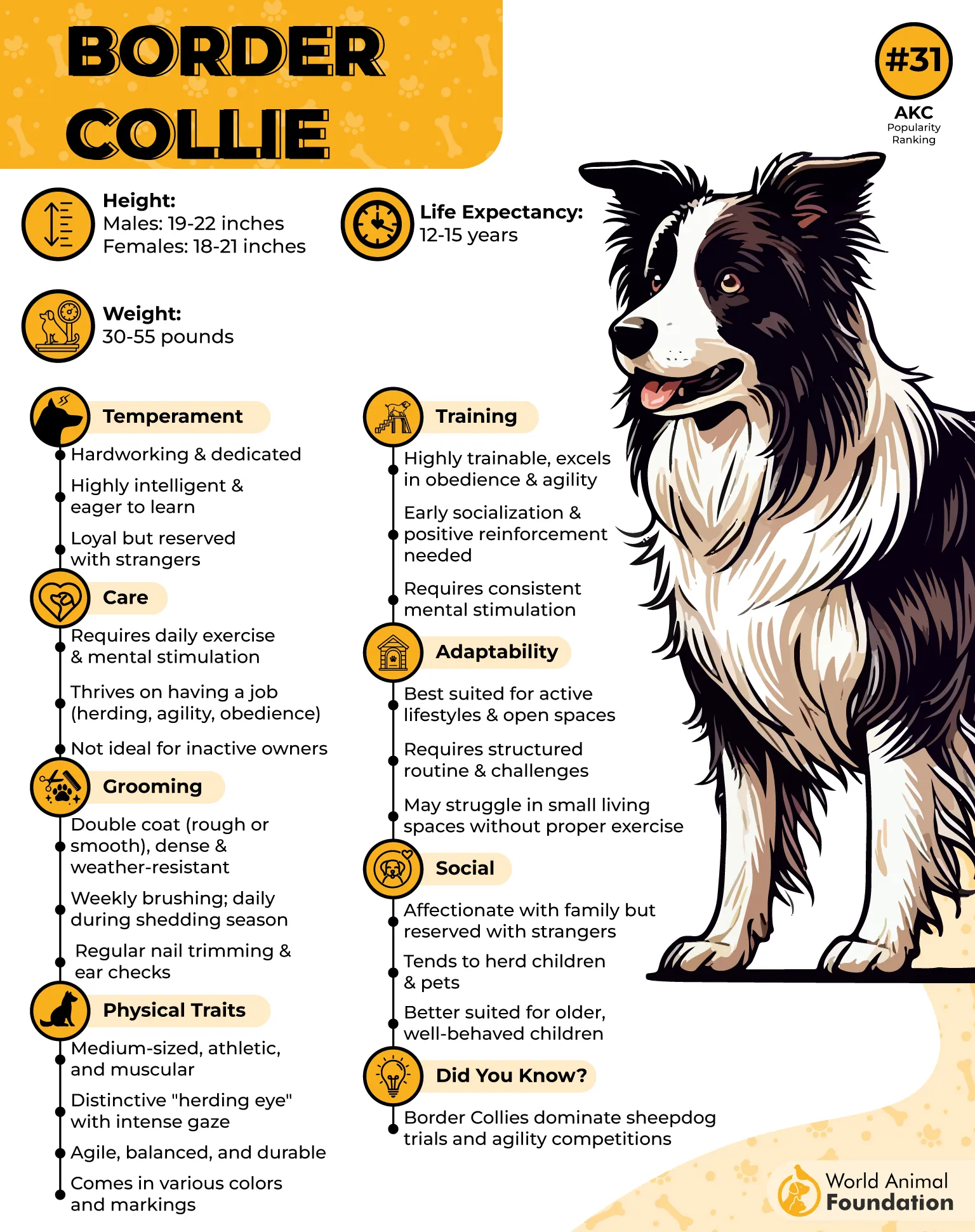
Strong Family Bonds
They tend to form connections that are both intense and protective, especially with the people they spend the most time with. Owners often describe their Border Collies as shadow-like, following them from room to room. This constant presence reflects how deeply they invest in relationships.
Protective Reactions
Their emotional awareness is often paired with a natural urge to guard. When they sense unease, they may stand between family members and perceived threats. Key traits include:
Quick response to emotional shifts
Comforting behavior in stressful situations
Willingness to act defensively if needed
9. Great Dane
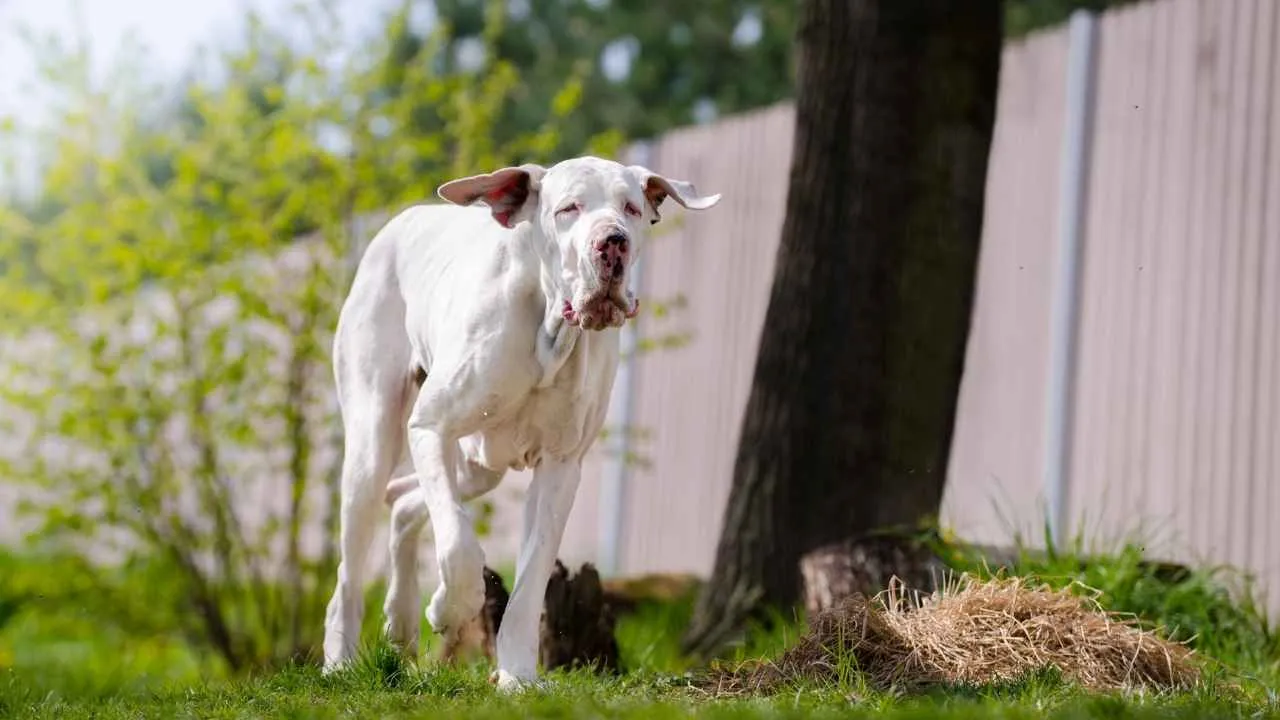
Great Danes are often described as intuitive companions that pick up on the moods of those around them. Their calm presence offers steady reassurance in stressful situations. Many owners notice that the breed will quietly stay close when someone in the household feels low.
Comforting Companionship
Despite their size, Great Danes are the gentle giants you never knew you needed. They’re calm, steady, and have an uncanny ability to sense when you’re stressed. They’ll happily stand by you or stretch out on the couch when you need grounding.

Why Families Value Them
Living with a Great Dane means having a dog that prioritizes connection as much as protection. Families often point to these traits:
Patient and dependable around children
Attentive without being overly demanding
Loyal in forming close emotional bonds
Balance of Strength and Gentleness
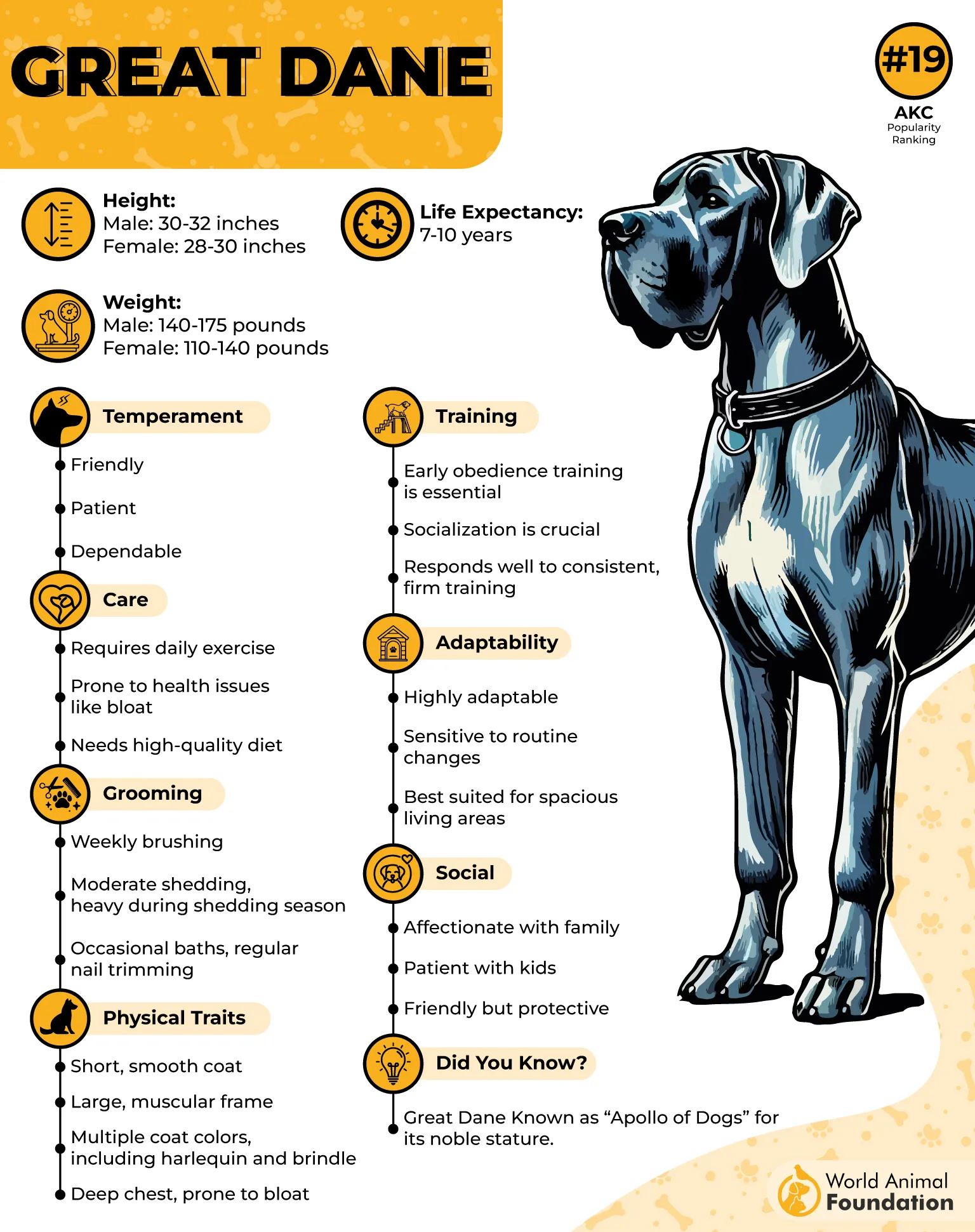
Their towering frame may suggest a powerful guard, yet their true strength lies in patience and empathy. They adjust their energy to match the environment, staying quiet during tense moments and playful when laughter returns. This adaptability makes them a source of comfort.
Conclusion
The bond between people and these affectionate dogs shows how deeply animals can connect with our emotions. Many of them serve as emotional support dogs, bringing comfort during moments of stress and enhancing overall mental health.
Families often find that these breeds not only provide companionship but also a healing presence when life feels overwhelming. While other dogs can offer love, these particular breeds excel at recognizing vulnerability and responding with gentle reassurance.
Whether in homes, therapy settings, or as rescue dogs, their sensitivity reminds us that emotional connection is as important as physical care.


